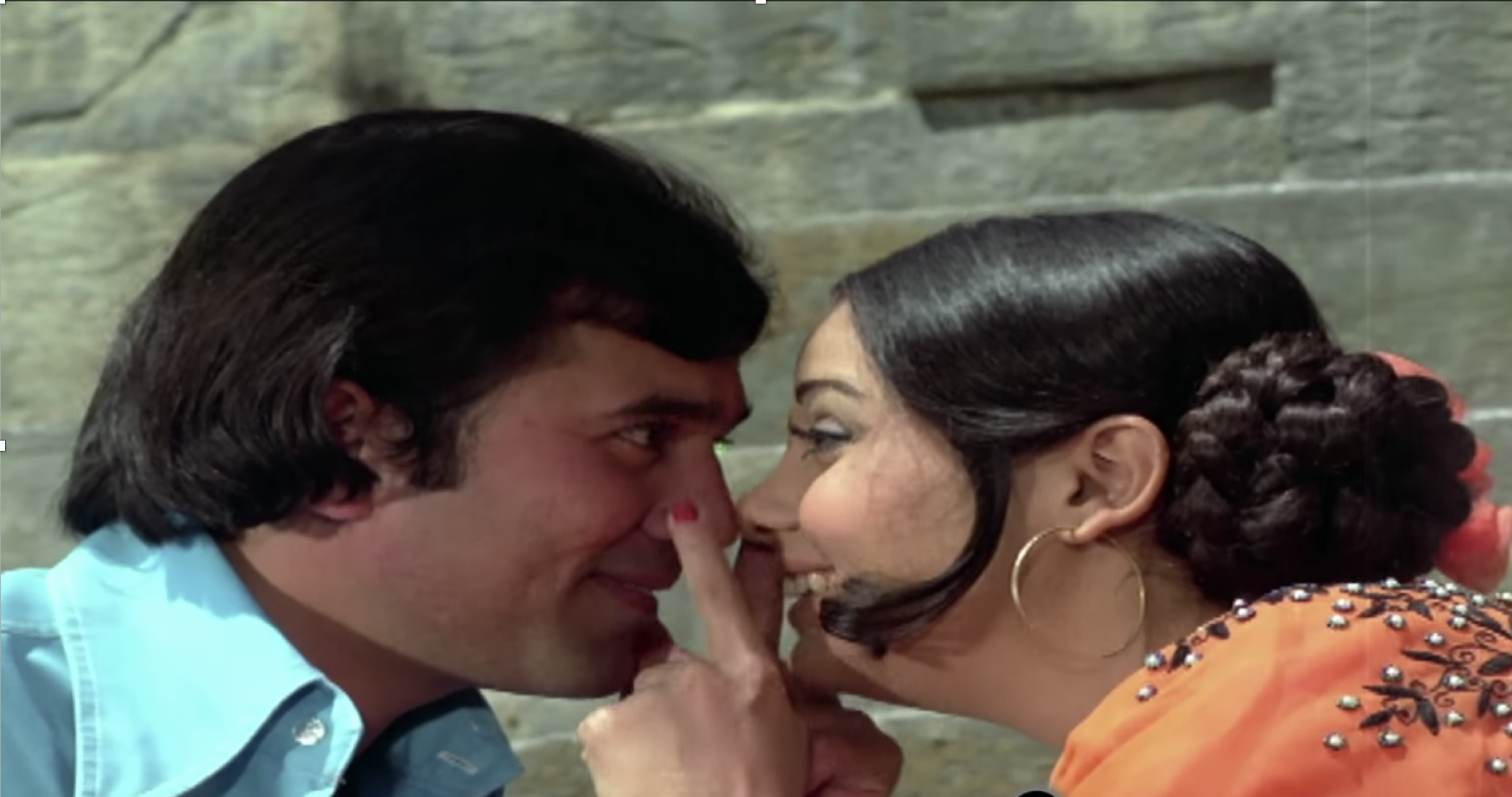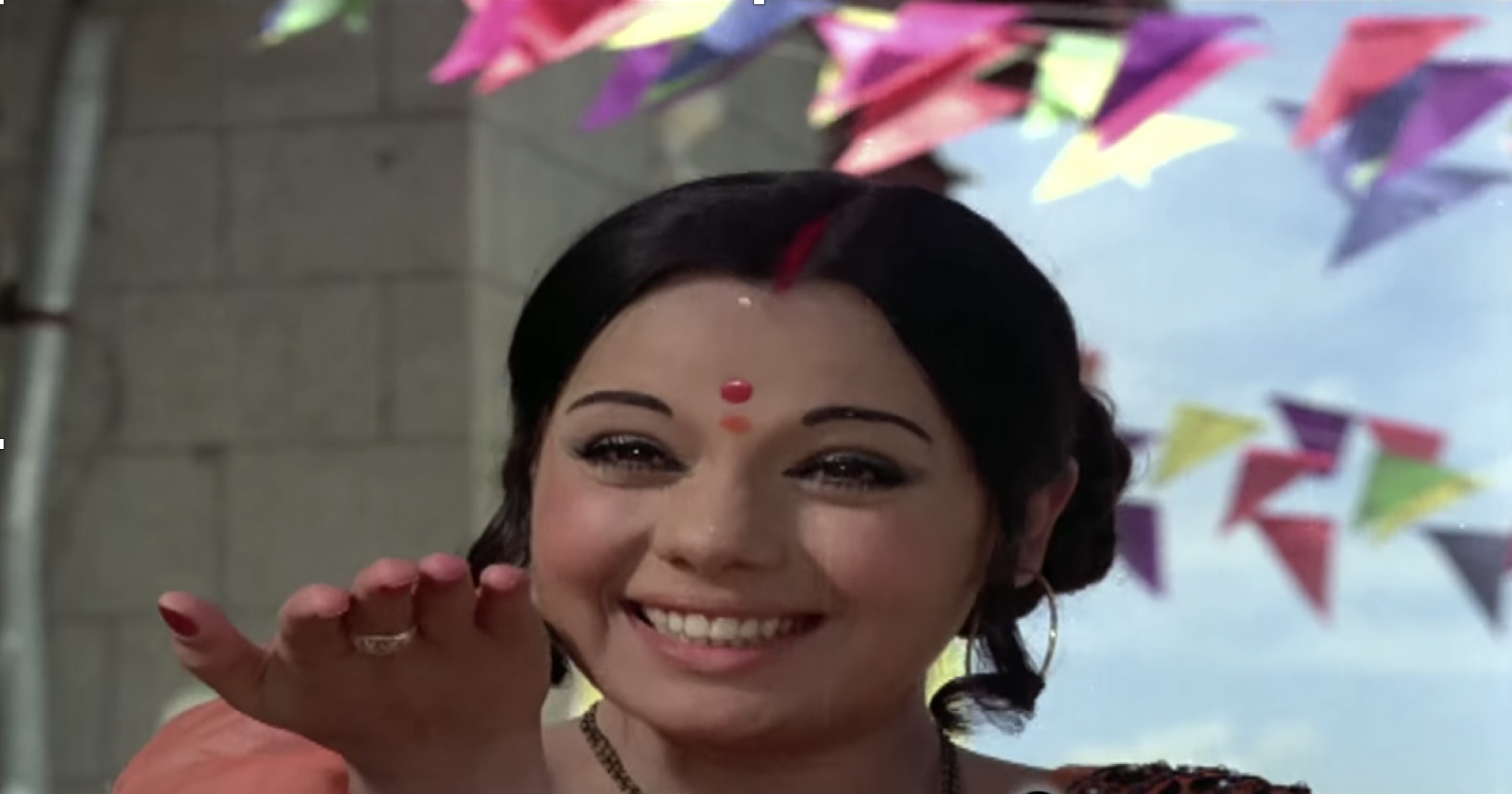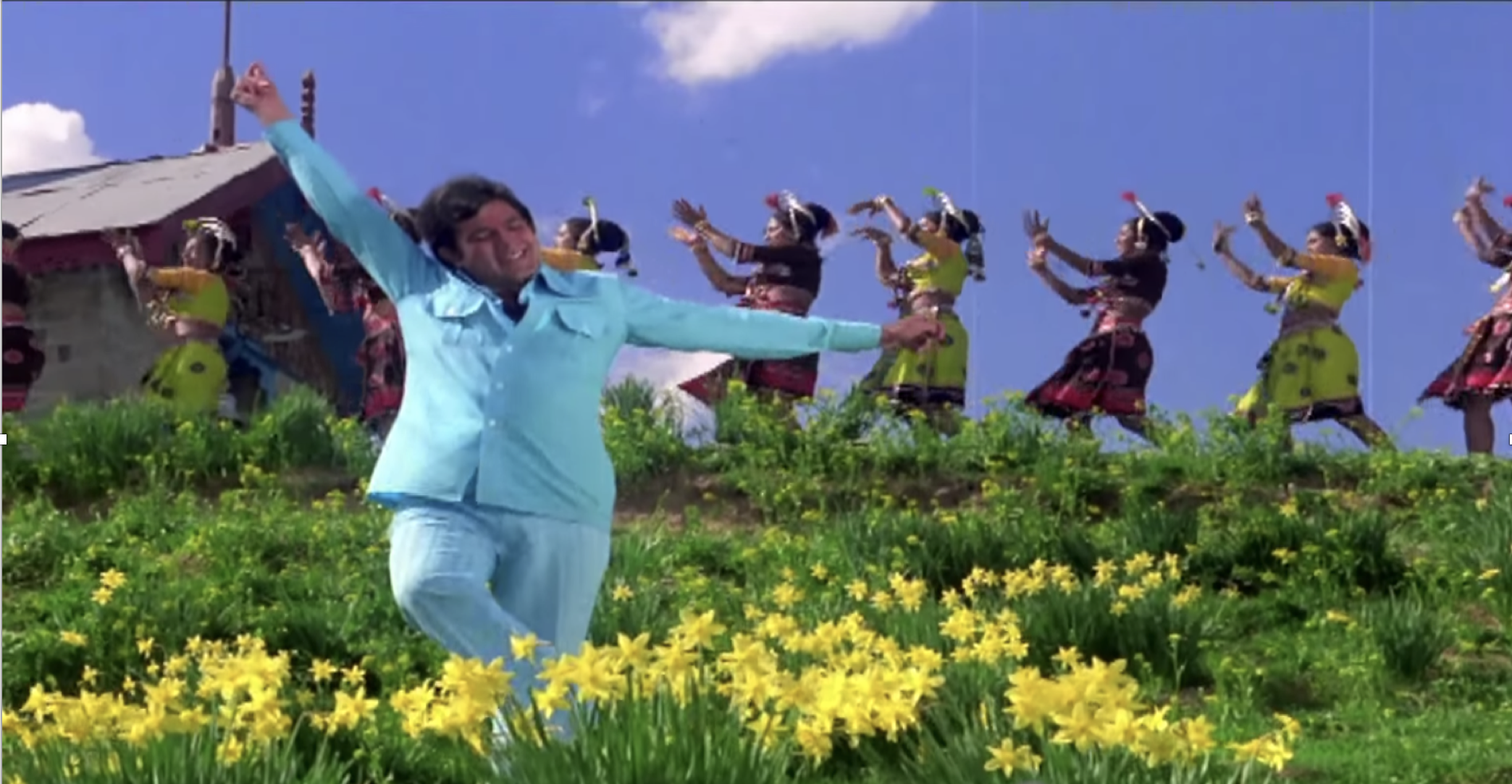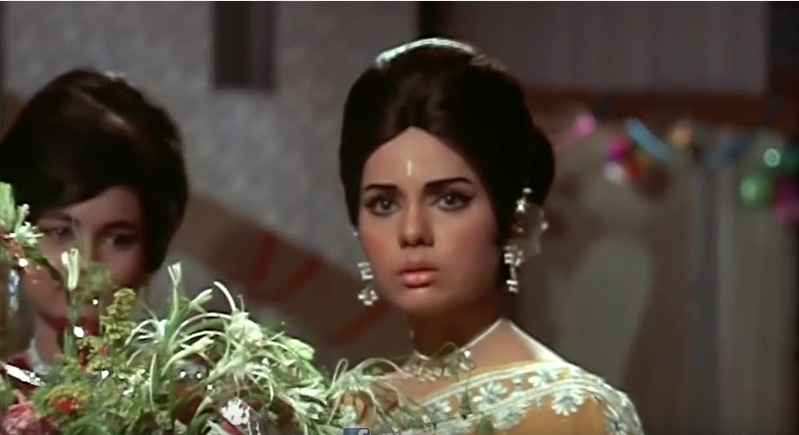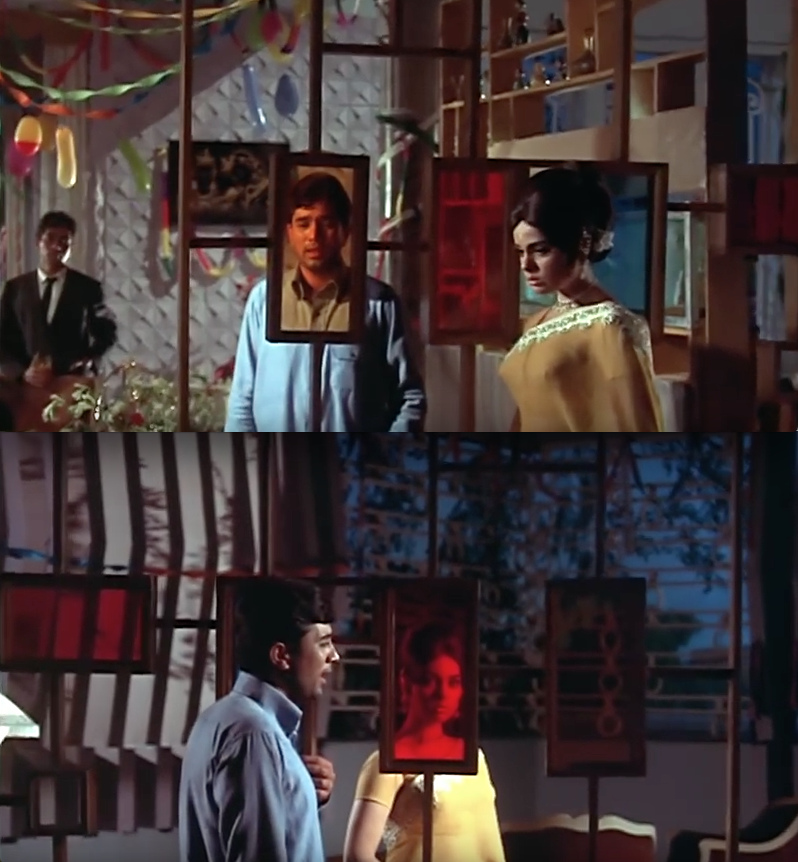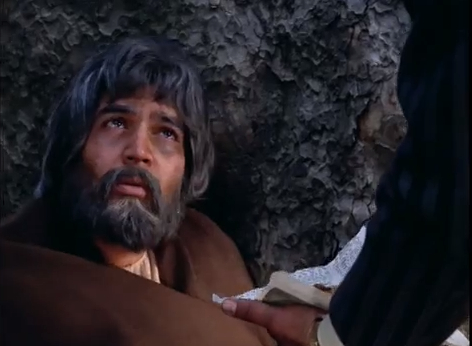
Today we are showcasing the poetic lyrics and English translation of “Khilona Jaan Kar” from the 1970 Filmfare Winner for Best Movie: Khilona. One of Mohammed Rafi’s iconic solo hits, “Khilona Jan Kar” is a deeply soulful appeal of a wounded man to a woman on the verge of leaving him.
Or at least that’s one way of looking at the song. I hadn’t watched Khilona (meaning “toy” in Urdu-Hindi) growing up, so hearing Anand Bakshi’s beautiful lyrics and seeing the music video, I was moved by the profound emotion only Rafi could imbibe so passionately into every reverberating “Ooooo khilona.” My father always burst into the song’s opening right after finishing up a satisfying vocal yawn. I think anyone can appreciate how that would transition quite smoothly.
Anyway, that’s my childhood in a nutshell. But now that I’ve seen the film, where, oh, where do I even begin?
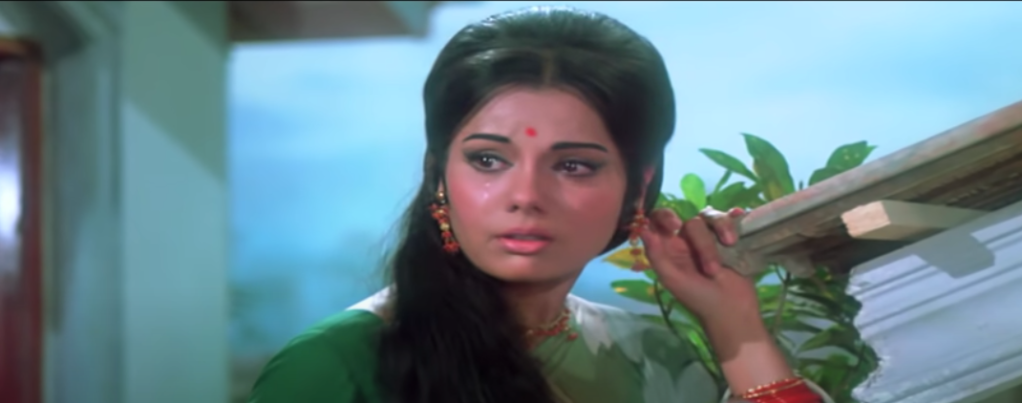
In Khilona, Sanjeev Kumar plays a famous poet who loses the love of his life in a traumatic incident, causing him to have a psychotic break. It’s hard to say precisely which disorder writer Gulshan Nanda was trying to convey here. Is it schizophrenia? Is it post-traumatic stress disorder? Sanjeev Kumar’s amalgamation of trope behaviors and unbridled basic instincts really underscore Bollywood’s overall troubling history portraying mental health disorders.
Speaking of Bollywood cliches, enter our courtesan with a heart of gold: Mumtaz. She is convinced to undergo a “fake” wedding ceremony and “pretend” to be Sanjeev Kumar’s wife in the hopes that this might help break his delusions. Then, using his psychosis as a shield, he rapes her and she is unable to seek restitution…partly due to the fact that she has gone full blown Stockholm Syndrome on the man who abuses her daily (another uncomfortable and relatively common theme in classic Bollywood films?). The lunacy of the plot is so stunning that it’s sad to believe it garnered Best Film of the year and really doesn’t reflect well on any of us.
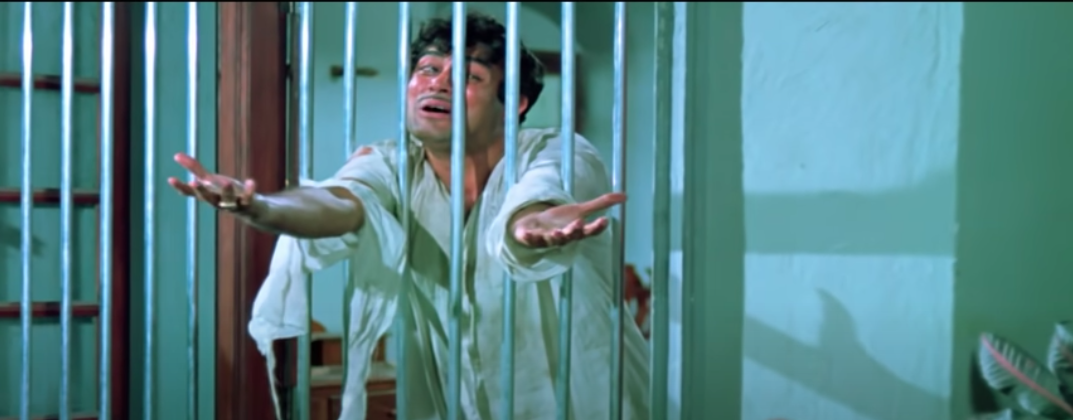
Sanjeev Kumar reaches out to Mumtaz through a symbolic prison in Khilona (1970). The film won the FilmFare Award for Best Movie in 1970.
That said, Mumtaz deserves credit for accepting this difficult role, which had been rejected by other heroines who didn’t want to play such a controversial character. The role won her Best Actress that year and led to her starring in blockbusters like Aap Ki Kasam (1974) and Prem Kahani (1975).
None of this is obvious when you listen to the words of “Khilona Jan Kar.” However, now that you know the backstory, you can appreciate the tragic irony of the shehnaii (an instrument typically reserved for wedding celebration) melody that punctuates a song dedicated to a disenfranchised woman who is embroiled in a delusional marriage. Suddenly, the prison-like scaffolding of the windows through which Sanjeev Kumar gazes make sense: as a mental health patient, he is outcast by Indian society, but he is also a literal criminal who has assaulted Mumtaz. After all, who is the real khilona here? Despite the lyrics’ dripping self-pity, it’s not Sanjeev Kumar. Toyed with by every self-serving member of the patriarchy, Mumtaz is the real khilona of the film. In that context, this song is just emotional blackmail.
That’s plenty to chew on, I think! Without further ado, we hope you enjoy our English translation to “Khilona Jan Kar” below!
Khilona Jaan Kar Lyrics and English Translation:
Khilonaa jaan kar tum to meraa dil toD jaate ho
You consider it a toy, and break my heart
Oooo mujhe is haal mei.N kiske sahaare chhoD jaate ho?
Oh, with whose support do you leave me alone in this condition?
O khilonaa jaan kar…
Khudaa kaa vaastaa dekar manaa luu.N duur huu.N lekin
For God’s sake, I would mollify you, yet I am far away
Tumhaaraa raastaa mei.N rok luu.N majbuur huu.N lekin
I would stop you in your path, yet I am weak
Ki mai.N chal bhii nahii.N saktaa huu.N, aur tum dauDh jaate ho
For I am unable to even walk, and you run away
O khilonaa jaan kar…
Gilaa tumse nahii.N koii, magar afsos thoDaa hai
I have no complaint against you, but I do have a little regret
Ki jis gham ne meraa daaman baDi mushqil se chhoDaa hai
That the sadness which left my side with great difficulty
Usii gham se meraa phir aaj rishtaa joD jaate ho
Is the same sadness you are binding to me today
O khilonaa jaan kar…
Mere dil se na lo badlaa zamaane bhar ki baato.N kaa
Do not take revenge upon my heart for a world of issues
Theher jaao! Suno! Mehemaan huu.N mai.N chand raato.N kaa
Wait! Listen! I am a guest for only a few nights
Chale jaanaa abhii se kis liye muu.N moD jaate ho?
You must go eventually, but why turn your face away from me right now?
O khilonaa jaan kar…
Glossary:
Khilonaa: toy; dil: heart; toDnaa: to break; haal: situation, health; sahaaraa: support; chhoDnaa: to leave; Khudaa: God; [kisii ka] vaastaa: the sake [of someone]; manaanaa: to mollify; lekin: yet; raastaa: path; roknaa: to stop; majbuur: weak; chalnaa: to go, to walk; dauDhnaa: to run; gilaa: complaint; magar: but; afsos: regret; thoDaa: a little; gham: sadness; daaman: side; embrace; baDaa: big, very; mushqil: difficulty; rishtaa: relationship, alliance (often in reference to a marriage proposition); joDnaa: to join, to bring together; badlaa lenaa: to take revenge; zamaanaa: the world, earth; Theher: to pause, to wait; sunnaa: to listen; mehmaan: guest; abhii: now; muu.N: face; moDnaa: to turn
Compound verb creation with “jaanaa”: A quick lesson from your Urdu-Hindi grammar school junkie
This is a concept that I still find takes finesse to use well and “Khilona Jaankar” is filled with compound verbs so it’s a great place to start! In Urdu-Hindi, you can create a special type of compound verb by taking a regular verb, such as “toDnaa” (to break), and combining it with “jaanaa” (to go). So instead of saying “you break my heart” as “dil toDte ho,” you would say “dil toD jaate ho.” The addition of “jaana” adds a sense of completion and finality to the verb preceding it. In these scenarios, the “na” is removed from the primary verb and the “jaanaa” is subsequently conjugated according to the tense you want to convey. Other commonly used compound verb examples include “denaa” or “lenaa“!
I highly encourage you to contrast Sanjeev Kumar’s performance here with his role in Aandhi (1975), where he shined playing the estranged, ultimately supportive husband to a rising female politician. Unlike Khilona for which he was nominated, but lost), Sanjeev Kumar won the Filmfare Best Actor Award for Aandhi, redeeming us all!
– Mrs. 55


